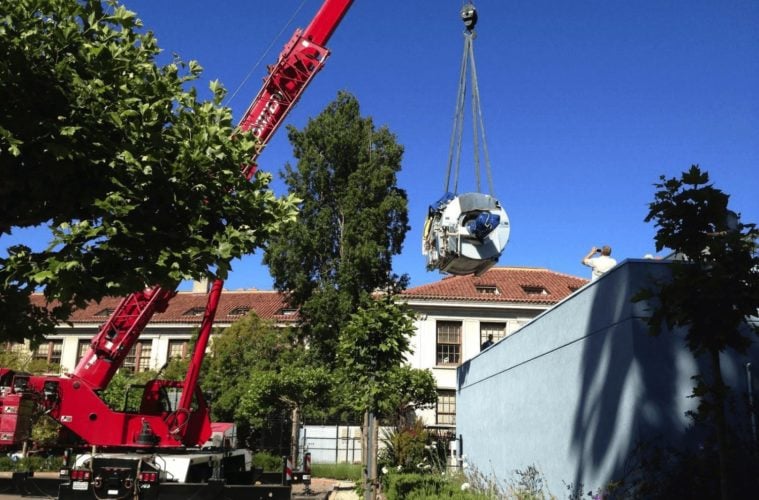We talked with Michael Pollan and some of his comrades from the Berkeley Center for the Science of Psychedelics on the heels of the most prominent psychedelic docu-series ever, How to Change Your Mind.
We’ve been surfing the psychedelic wave here at L.A. Weekly for the past few years as journalists and unofficial test subject(s). We covered the biggest psychedelic meets pharma conference ever. We’re even lucky to chat with Dr. Rick Doblin from the Multidisciplinary Association for Psychedelic Studies every now and then about all the progress.
Even with all that, nothing feels as normalizing for psychedelics as listening to the cool and collected Pollan explain his personal journey in search of a better understanding of four psychedelic substances in his new docu-series. They are LSD, psilocybin, MDMA, and mescaline.
Psychedelics’ Berkeley Comeback
In addition, Pollan has played a vital role in the formation of the Berkeley Center for the Science of Psychedelics (BCSP). While Pollan beat most of his academic peers into jumping on the psychedelic movement’s bandwagon, things have changed a lot over the years. When he was doing the reporting for How to Change Your Mind, he interviewed his fellow professors. They were scared to touch the subject. Many were worried it would be a death sentence for their graduate students. Times obviously changed, quickly. Now the BCSP is on the verge of its second anniversary.
The center’s goals include understanding how psychedelics interact with the mind, with the help of UC Berkeley’s leading Neuroscience Department and Henry H. Wheeler Jr. Brain Imaging Center.
Another major goal of the center is to train the next generation of psychedelic facilitators. They will be critical in chronicling the progress of our understanding of psychedelic medicine. Those mid to late career professionals from appropriate fields will even have the opportunity to take part as test subjects in psilocybin research, to better understand what’s happening to the people they’ll be leading in their own experiences.
The third major goal for the center is to become the largest public resource for the latest information on psychedelic science. The center already is releasing content regularly through its Microdose newsletter on Substack.
In Search of Understanding Healing
Pollan argues America’s mental health crisis makes studying the health implications of psychedelics a matter of urgency these days rather than respectability. He joined peers in Berkeley pondering what they could do to support efforts, as they saw research starting to happen at places like John Hopkins and NYU.
“So it didn’t make sense for us to do clinical work, because a lot of other places were doing it, but what we did have was a first-rate neuroscience and psychology department and not many people were doing basic science trying to understand how it is that psychedelics have the effect they have,” Pollan said.
They wanted to know why they’re effective for so many mental disorders. What they might teach about things like perception.
“Our wager was that if we turn some absolutely first-rate neuroscientists loose with these new investigatory tools, they’d make some important discoveries,” Pollan said. “The other thing we thought we could do well here was train up a cadre of psychedelic facilitators.”
Pollan noted he estimates that roughly 100,000 facilitators will be needed when the FDA approves psilocybin and MDMA.
“These substances have enormous potential, but they are not for everyone and they carry serious risks when used improperly,” Pollan said. “The shift from the destroyer of young minds in the ‘60s to effective medicine in the 2020s is as sudden as it is confusing to many people. So we want to address that confusion and that curiosity with solid credible information from what is a trusted source.”
The Research
Andrea Gomez went over the research goals and work currently underway at the BCSP. Gomez is an assistant professor in UC Berkeley’s Department of Molecular and Cell Biology and the Helen Wills Neuroscience Institute.
“I would say that an essential theme of our research focuses on the simple question of what can psychedelics teach us about change,” Gomez said.
Gomez noted those changes include what’s happening in the mind, the body, and using their potential to impact mental health across the globe.
“Yes, we are captivated and want to understand the healing power of these mind-altering medicines that are produced naturally in fungi, plants and animals, as well as synthetically produced in the lab,” Gomez said. “We want to understand how they alter the mind and body, and we think understanding the mechanisms, the actions, both in the short term and in the long term is especially relevant as the likelihood of these medicines and these compounds entering our mental health care system.”
With Gomez’s focus on neuroplasticity in her work, it’s easy to understand why she’s keen to better understand psychedelics’ lasting impact on the mind, even after just one dose.
Advertising disclosure: We may receive compensation for some of the links in our stories. Thank you for supporting LA Weekly and our advertisers.

